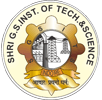B.Tech (Electronics and Telecommunication Engineering)
Program Educational Objective (PEO):-
To create technically competent human resource capable of fulfilling dynamic socio-economic needs in the field of Electronics and Telecommunication Engineering
|
PEO 1
|
The graduates of Electronics & Telecommunication Engineering shall be competent Electronics and Telecommunication Engineers, with hardware & software component /subsystem selection capabilities, for system design, development, integration, operation, commission, maintenance and up gradation of the systems.
|
|
PEO 2
|
The graduates shall have competency to become successful professionals for accelerated socio-economic growth of the organization/ country.
|
|
PEO 3
|
The Electronics & Telecommunication Engineering graduates shall have high moral values/ethics to build an efficient team with appropriate soft skill capabilities.
|
Program Outcome (PO):-
| PO 1 : | Engineering knowledge: Apply the knowledge of mathematics, science, engineering fundamentals, and an engineering specialization to the solution of complex engineering problems. |
| PO 2 : | Problem analysis: Identify, formulate, review research literature, and analyze complex engineering problems reaching substantiated conclusions using first principles of mathematics, natural sciences, and engineering sciences. |
| PO 3 : | Design/Development of solutions: Design solutions for complex engineering problems and design system components or processes that meet the specified needs with appropriate consideration for the public health and safety, and the cultural, societal, and environmental considerations. |
| PO 4 : | Conduct Investigations of Complex problems: Use research-based knowledge and research methods including design of experiments, analysis and interpretation of data, and synthesis of the information to provide valid conclusions. |
| PO 5 : | Modern Tool Usage: Create, select, and apply appropriate techniques, resources, and modern engineering and IT tools including prediction and modeling to complex engineering activities with an understanding of the limitations. |
| PO 6 : | The engineer and society: Apply reasoning informed by the contextual knowledge to assess societal, health, safety, legal and cultural issues and the consequent responsibilities relevant to the professional engineering practice. |
| PO 7 : | Environment and sustainability: Understand the impact of the professional engineering solutions in societal and environmental contexts, and demonstrate the knowledge of, and need for sustainable development. |
| PO 8 : | Ethics: Apply ethical principles and commit to professional ethics and responsibilities and norms of the engineering practice. |
| PO 9 : | Individual and team work: Function effectively as an individual, and as a member or leader in diverse teams, and in multidisciplinary settings. |
| PO 10 : | Communication: Communicate effectively on complex engineering activities with the engineering community and with society at large, such as, being able to comprehend and write effective reports and design documentation, make effective presentations, and give and receive clear instructions. |
| PO 11 : | Project management and finance: Demonstrate knowledge and understanding of the engineering and management principles and apply these to one’s own work, as a member and leader in a team, to manage projects and in multidisciplinary environments. |
|
PO 12 : |
Life-long learning: Recognize the need for, and have the preparation and ability to engage in independent and life-long learning in the broadest context of technological change. |
Program Specific Outcomes (PSO)
| PSO 1 | Develop an ability to analyze and design Electronics and Telecommunication systems and sub systems, using the knowledge of basic sciences, and applying mathematical and engineering fundamentals, or, research knowledge to solve complex engineering problems. |
| PSO 2 | Develop competency for placement, higher studies and entrepreneurship in the relevant areas of Communication, RF & microwave, Computer networks, Data analytics and VLSI technology with the aid of various state of art hardware and software tools. |
| PSO 3 | Communicate effectively in order to adapt, understand and solve the practical problems as an individual as well as in a team through minor and major projects, seminar and workshops with a responsible view towards the society, and environment following professional ethics. |
M.Tech. (Electronics and Communication Engineering)
Program Educational Objective (PEO) :-
| PEO 1 |
The Post Graduates of Electronics and Communication Engineering shall posses proficiency for design and development of systems and subsystems related to Electronics and Communication Engineering. |
| PEO 2 |
The capability to carry out research in the thrust areas of Electronics and Communication Engineering would be developed to serve national mission of self dependent society. |
| PEO 3 |
The Post Graduates shall have high moral/ethical values along with team building capability leading to lifelong learning. |
Program Outcome (PO) :-
| PO 1 | An ability to independently carry out research /investigation and development work to solve practical problems |
| PO 2 | An ability to write and present a substantial technical report/document |
| PO 3 | Students should be able to demonstrate a degree of mastery over the area as per the specialization of the program. The mastery should be at a level higher than the requirements in the appropriate bachelor program |
| PO 4 |
Solve complex problems in the field of Electronics & Communication Engineering with hands-on practice on different hardware/software platforms.
|
| PO 5 | Associate the learning from the courses relevant to emerging areas of Electronics & Communication Engineering to derive the solution of real world problems. |
| PO 6 | Develop a Capability to comprehend with the technological advancements for pursuing research in the field of Electronics & Communication engineering |


